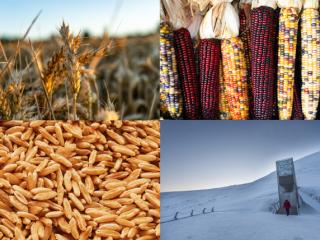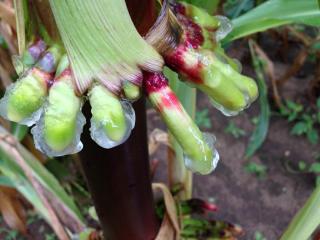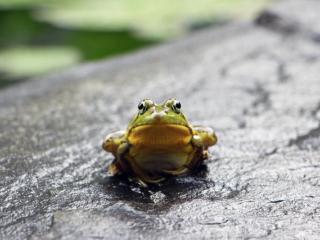In 1914, over the week leading up to Christmas day, the opposing troops sang carols to each other, played ball and exchanged gifts, in spite of their generals’ wishes. Historian Stanley Weintraub says that the Christmas Truce was a one-time-only event.More
Interviews By Topic
Stephen Sondheim is the reigning genius of musical theater, with credits ranging from "West Side Story" and "Gypsy" to "Sweeney Todd "and "Into the Woods." In this interview from 2013, Sondheim gives Steve Paulson a few pointers on how to write both music and lyrics.More
Every year, at holiday time, "H is for Hawk" author Helen Macdonald reads this tale of a boy who finds out he's one of the "old ones," part of a series from author Susan Cooper. She says it reconnects her with a sense of wonder inspired by what might lurk beneath the surface of the seen world.More
Would Sondheim prefer to work on music or lyrics? What was it like to work on West Side Story? What's his take on musical critics? You can hear that — and a whole lot more — in this extended interview with him from 2013.More
In Japan, there is a name for extreme gratitude — Naikan. Gregg Krech is dedicated to the practice, and he thinks holidays should be less about running around making everything perfect and more about inner reflection.More
Brother Peter Reinhart has devoted his entire life to nurturing matters of the soul. His spiritual path has led him to the comforting ritual of baking bread.More
After 30 years of playing it, cellist Clarice Jensen decided she wanted to open up what she could do with her cello. So she started plugging it into guitar pedals.More
When Nikka Costa was ten, she was a pop sensation in Europe. In her 20s, she was Britney Spear’s opening act. But she’s left pop music behind and now she’s performing songs by some of the musicians she’s known, including Prince and Frank Sinatra.More
Most of us get our food from the grocery store, not the fields where it grows. But if you really want to understand where our food comes from — and the potential threats to the food supply — you have to think about seeds.More
There is an unusual, giant corn in southern Mexico that gets its own nitrogen from the air — no manufacturing required.More
Composer, environmental philosopher and guest producer David Rothenberg teaches us how to deeply listen to urban spaces.More
Robert Macfarlane spent a decade exploring caves, mines, catacombs and sewers, on a quest to discover the deep underground. He found a subterranean world of wonder and horror.More
Andreas Weber is a German biologist and philosopher with a highly unconventional way of describing the natural world, one in which "love" is a foundational principle of biology.More
Do you know what an earthquake sounds like? Geophysicist Ben Holtzman collects recordings from around the world — from the Fukushima disaster to the manmade earthquakes caused by fracking. We hear examples of these seismic rumbles.More
One of the greatest walkers of our time, William Helmreich — known for exploring every street in New York City — was an early casualty of COVID-19. But composer David Rothenberg got to walk with him one last time, around wetlands in Queens.More
Valmont Layne grew up under apartheid in South Africa. Music, along with protest movements, radicalized him. He tells Anne and Steve that South African jazz became a musical current that’s traveled across oceans, spreading ideas about freedom.More
Humans are not the only creatures who vocalize. Birds, whale and frogs have voices too—but are we listening? Bernie Krause has been recording environmental sounds all over the world since the 1970s. He says it's time for humans to shut up.More
To unpack the history of African musical migration, you have to go back to European colonization, says musicologist Ron Radano. He's been rewriting the history of race and Black music, and he says, "We are all African when we listen."More

















